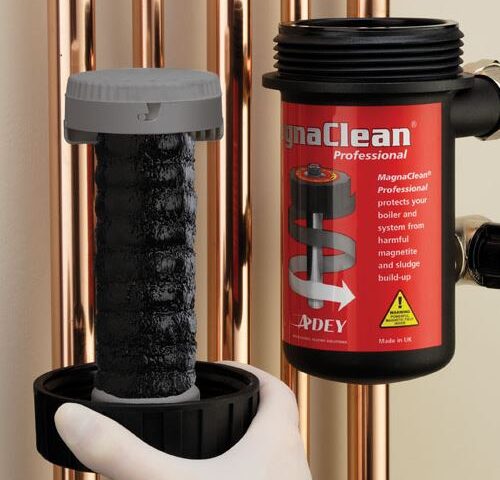Central heating system water quality is really important!
The quality of the water within your heating system is the single most important part of the system. Have you ever removed a radiator and found slimy black sludge leak out all over your brand new bright white carpet? This sludge is a build-up of metal particles from the components in your heating system, dissolving into the water; radiators are made of steel so will rust on contact with water. Sludge gets caught in radiators causing cold spots and will also get caught up in the working parts of the heating system – this is the most common cause of boiler breakdowns.
Sludge is preventable. Therefore a lot of boiler breakdowns are preventable using preventive maintenance rather than reactive maintenance when things go wrong. Some of the parts that often go wrong due to poor water quality are quite expensive, so it is also cheaper to prevent this from happening in the first place. Preventing sludge build up within a heating system will not stop all break downs but it will stop a lot of them.
So, what can you do?
The first thing is to fit a magnetic filter on your heating system, as a lot of the sludge particles are iron and will stick to it. The magnetic filter can then be cleaned out every year when a Gas Engineer comes to service your boiler. Make sure this is something your Gas Engineer does for you, as it’s not part of a boiler service; some may charge extra but we’d recommend you have this carried out. see how they work here,
The second thing to do is to make sure your central heating water always has the correct level of inhibitor in it. Inhibitors are designed to help slow down the rusting process to prevent sludge forming in the first place. We recommend that this is tested yearly and topped up where needed; on an old heating system this has probably never or very rarely been topped up as its not part of a boiler service, so Service Engineers don’t check it. In most cases inhibitor is only added to a system when it is drained down for work to be carried out.
If you have a new boiler this is even more important
A new modern boiler has smaller internal holes for the water to flow through compared to old boilers. Combi boilers have very small holes in a plate to plate heat exchanger to give you hot water, and these can easily block. A lot of new boilers come with a manufacturers Guarantee/ Warranty of 5-10 years and they all say if sludge is found in the system it will be void. We have now seen that manufacturers are doing water quality tests when they go out to a Guarantee / Warranty call. If the results come back saying there is not the correct amount of inhibitor, or there is more than a certain level of iron in the system, they will not honour the rest of the Guarantee / Warranty until this is put right. This is because Sludge is the biggest cause of boiler breakdowns and has nothing to do with the boiler itself.
We can keep on top of water quality for you when doing your annual service, for the below costs
| Test water quality for iron, and inhibitor | £15 |
| Add 1 litre of X100 inhibitor when test result requires it | £25 |
| Mains flush heating system, refill and bleed radiators and add inhibitor (estimated to be needed once every 5-7 years if water quality has been kept on top of annually) | £250 |
| To supply and ft a magnetic filter | £235 |
| Full chemical power flush to remove all debris and clean system, bleed radiators and top up inhibitor (this will never be needed if good water quality is maintained, but could be needed if never done before and you have cold spots on the heating system) |
£550 |
Please call to book your Service, rates can be found here
All of the above is covered for customers on our service contracts – please a ask for more details
If you don’t keep on top of your heating system this could result in needing a new boiler, find out here what our average installation costs

